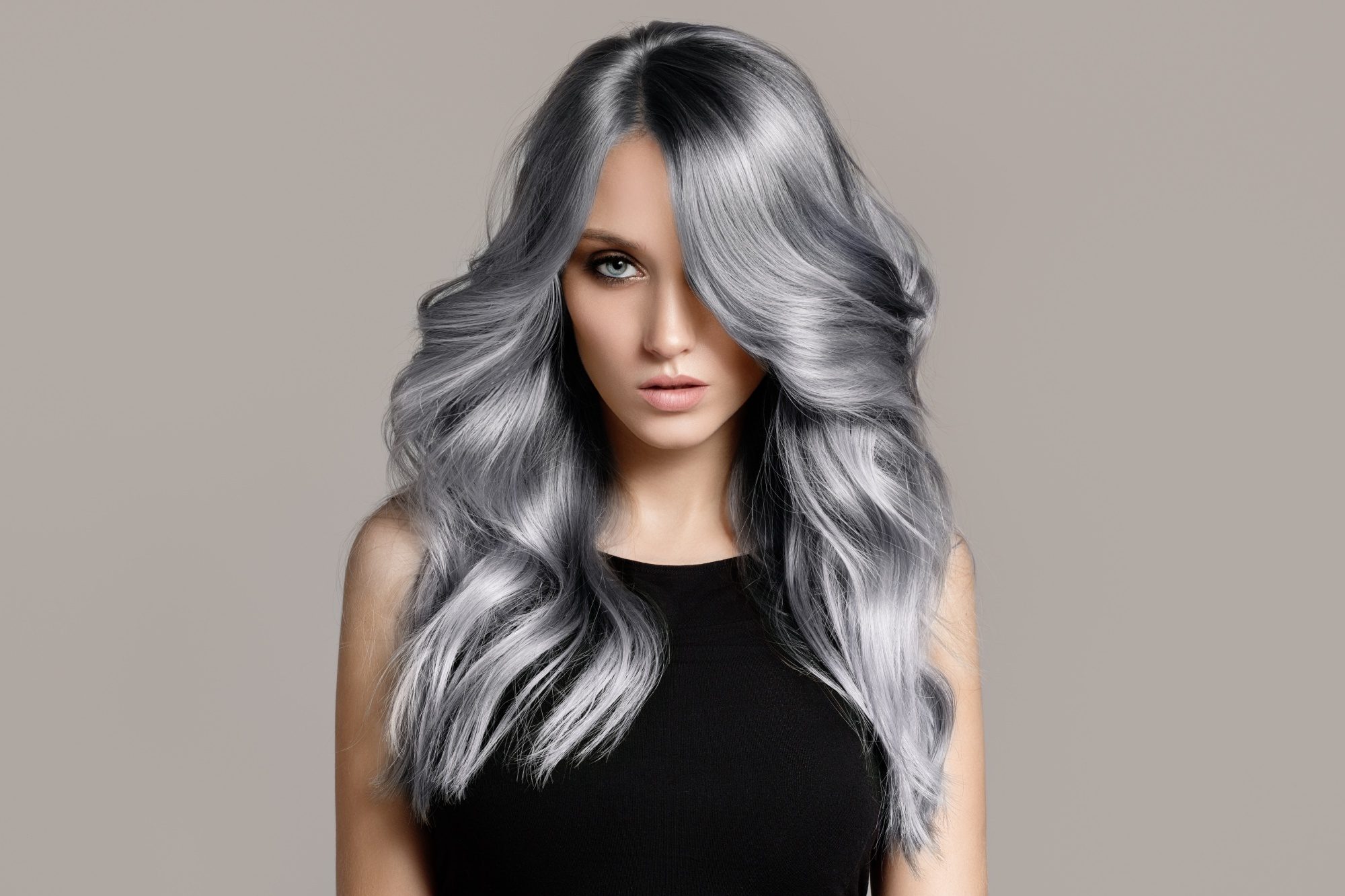If you’re tired of dealing with your hair’s constant breakage, there are a few ways you can minimize the damage. For starters, try to limit the number of chemical processes you use on your hair. For example, limit your use of hair color and highlights. Also, limit the number of times you get root touchups.
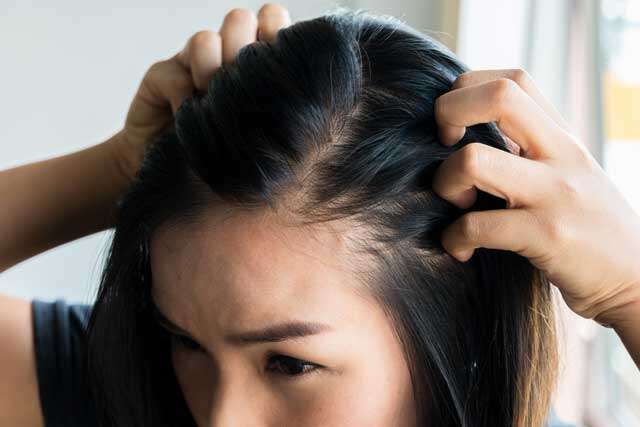
Signs of hair breakage
Hair breakage is a condition where your locks begin to break. Breakage can be visible or subtle. You may notice that your hair is less shiny and has a dull appearance. If your hair becomes matted and tangled, it may be showing signs of breakage. Damaged strands tend to absorb extra moisture, making them heavier. They also don’t look as fresh as healthy Hair does because they’re overly saturated with moisture.
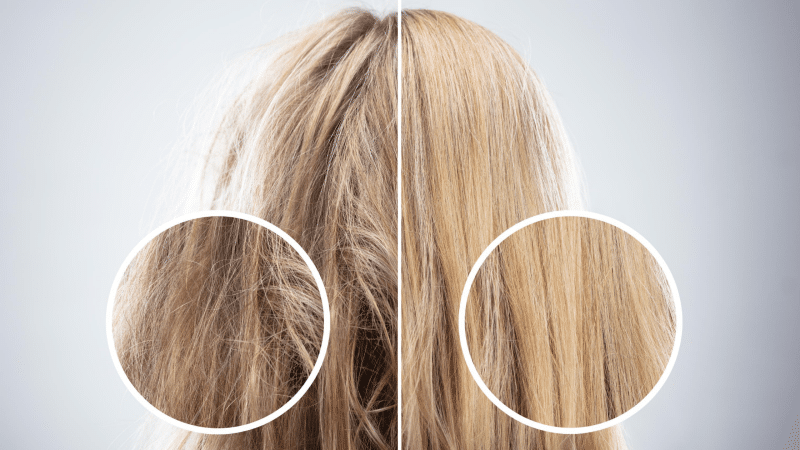
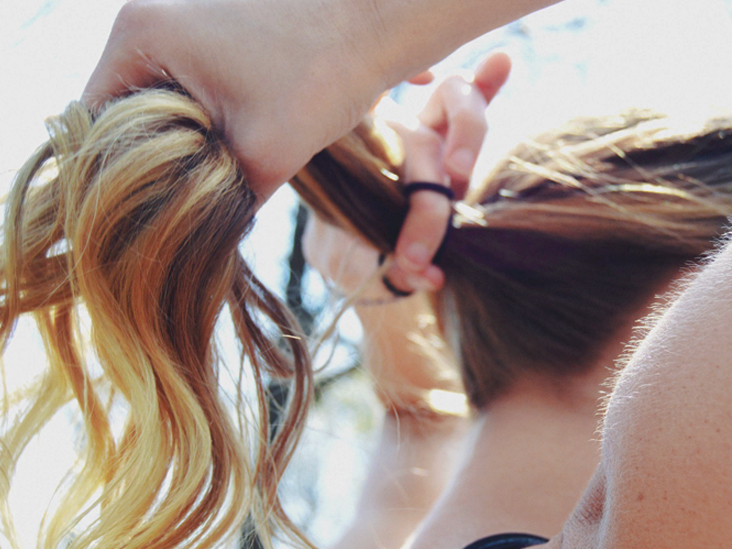
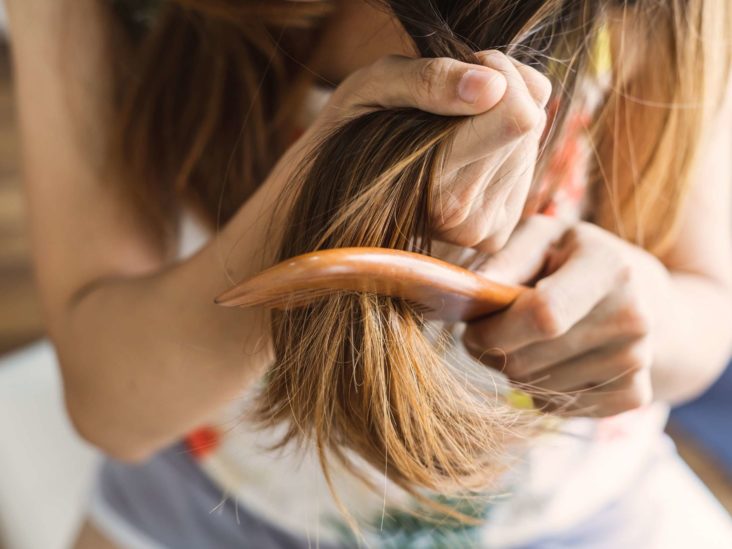
The first step to fixing breakage is to diagnose the underlying cause. This means not using off-the-shelf products, but going to a medical professional for an analysis. A medical hair check such as the Advanced Hair Check can help identify the underlying cause of the problem. It may also reveal nutrient deficiencies.
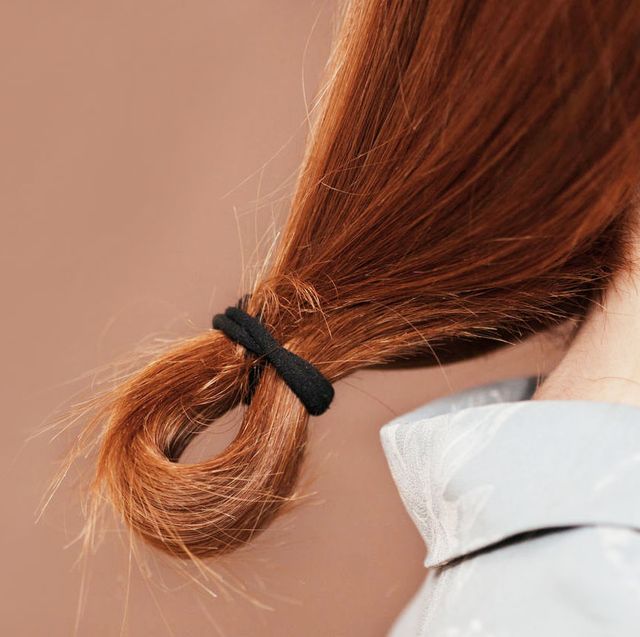
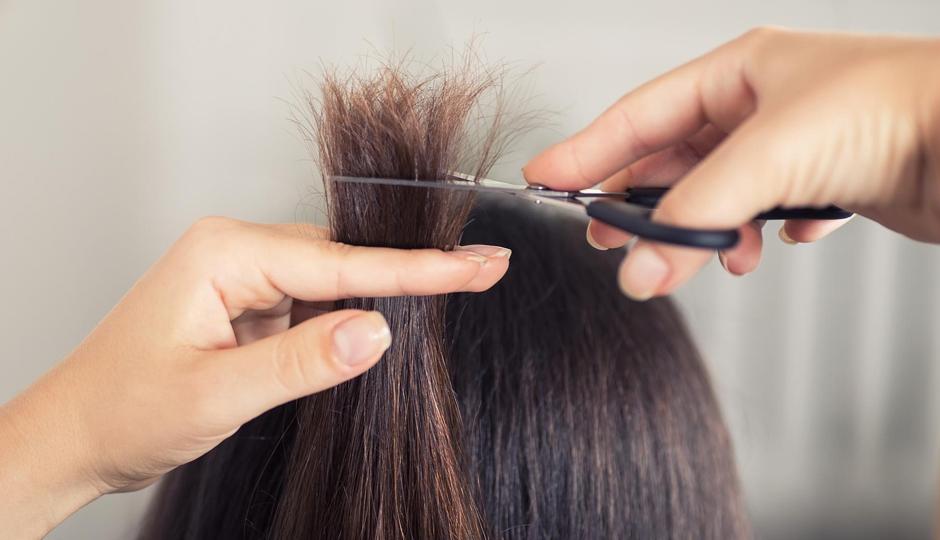
Damaged hair is often characterized by split ends or hair that snaps off easily. These are early signs of hair breakage. Often, the damage may also be visible on individual strands. A damaged strand is brittle, and it snaps easily. Dryness is another common symptom of Hair breakage.
The damage may also be caused by improper styling. The heat from heat styling tools can damage hair, so use heat-protecting tools and detanglers. Also, avoid brushing your hair when it is wet, as this is the weakest stage. Instead, brushing from the roots of the hair will prevent additional tangles and limit breakage.
Hair breakage can be frustrating. While some hair loss is normal, excessive loss is not. The average human loses about 60 to 100 hairs per day. While this does not affect your hair’s growth speed, excessive breakage can make the hair look like it is growing very slowly. If you notice a pattern of breakage, you should see a doctor to get an accurate diagnosis.
Another sign of breakage is split ends and extreme frizz. In addition, your hair may be lacking the essential nutrients it needs. In addition to applying products to your hair that provide essential nutrients, avoiding chemicals and letting your hair air-dry can also prevent hair breakage.
Causes of hair breakage
Hair breakage is a common problem that occurs in all hair types. It can be caused by a number of factors. Some of these factors are genetic, while others are more physical. Some causes of hair breakage are excessive hair styling, using heat-aids, not getting regular haircuts, and using the wrong products. In most cases, breakage is temporary and can be remedied with simple lifestyle changes. In rare cases, it may require medical intervention.
Improper hair care practices are also common causes of breakage. Many hair products contain chemicals that weaken your strands. Some shampoos contain an acidic ingredient that can cause friction between strands. Avoid these products if you want your hair to be strong and healthy. Also, avoid brushing your hair too much.
Stress can also cause breakage, so try to reduce stress and take time to relax. If you don’t have time to do this, consider seeing a dermatologist. Your dermatologist will be able to assess the root causes of your breakage and suggest a treatment plan. Another thing you can do is to make sure your diet is filled with plenty of proteins, omega-3s, iron, and biotin. These nutrients help to keep your strands strong and prevent breakage.
Another common cause of breakage is lack of essential nutrients. Your body needs zinc, iron, and folic acid. These nutrients are found in foods such as spinach, eggs, salmon, and avocados. Also, don’t forget to drink plenty of water. Without sufficient water, your hair will become dry and brittle.
When treating patients with hair breakage, dermatologists must understand the underlying cause. Hair breakage may be caused by various factors, such as genetics, weathering, and hair styling practices. Understanding these factors is crucial to determining an effective treatment plan. Proper hair care products can help minimize breakage.
Stress can also cause hair breakage. It can lead to obsessive habits and reduce hair elasticity. Stress has also been linked to a temporary form of hair loss called telogen effluvium. This condition makes hair follicles go dormant, making them susceptible to breakage.
Home remedies for hair breakage
One of the easiest home remedies for hair breakage is to eat a healthy, balanced diet. Include lean proteins, omega-3 fatty acids, vitamin E, and zinc in your daily diet. Make sure to drink eight glasses of water per day, too. You can also take vitamin supplements to supply iron and other nutrients that are vital for your hair.
To make an effective hair mask, you can use olive oil, coconut oil, and mustard oil. These oils are full of vitamins and antioxidants. Mix them well and then apply to hair. Leave the mixture on for 30 minutes, then wash it off with a mild shampoo. You can repeat this treatment once or twice a week.
You can also try African herbs, which can strengthen the hair strands and retain their length. These natural remedies are safe and cost-effective. These herbs will help prevent further damage from occurring and can help correct any damage that has already occurred. By following these tips, you can keep your hair healthy and stop breakage from happening again.
Avocado is rich in vitamins, amino acids, and other nutrients that are vital to healthy hair. This fruit also contains folic acid and magnesium. It can revitalize dry, brittle strands by providing deep conditioning. Additionally, avocado contains mono-unsaturated fatty acids, which will prevent moisture from being lost from the strands.
Oil massage is another way to prevent hair breakage and maintain its health. Using oil in your hair regularly will keep it moisturized and help you avoid frequent shampooing. You should also follow a healthy diet, including fresh fruits, vegetables, fish, and lean meat, as well as plenty of water. These tips can not only prevent hair breakage, but they can also help repair the damage that has already occurred.
Coconut oil is another natural remedy for hair breakage. Not only does coconut oil moisturize your hair, it is also an effective emollient. The lauric acid in coconut oil imparts antifungal properties that can help protect against dandruff and hair breakage. Simply apply the oil to your scalp and leave it on for two to three hours to see noticeable results. Castor oil also increases blood circulation to the scalp, making it stronger.
Treatments to prevent hair breakage
There are a few treatments and lifestyle habits you can implement to prevent hair breakage and restore the strength of your tresses. These include not rubbing hair with a rough towel or using hot tools excessively. Moreover, you should also avoid wearing really tight hair ties. These tips will go a long way to help you maintain lustrous locks.
Hair breakage is most often caused by dry, brittle hair. Other factors that contribute to it include using harsh hair products or exposing your hair to harsh water or heat styling. In addition, a proper diet and regular hair care can help prevent breakage. However, if the problem persists, you can visit a doctor to find out if there is any underlying cause.
Aside from following a healthy diet, hair breakage can also be a result of daily styling. Using products that are high in protein can help strengthen the hair strands and prevent breakage. However, too much protein can cause further breakage. For these reasons, it is important to use a product that has adequate moisture content to prevent breakage.
Hair breakage is a common issue for people with curly hair. The spiral shape of the follicle makes curly hair more prone to breakage. In addition, it grows more slowly than other types. In addition, it is more prone to damage when cosmetic treatments are applied.
Another preventive treatment is using a conditioner that contains emollients and humectants. Humectants attract moisture from the air, while emollients lock in moisture. Examples of such products include Aveda’s Brilliant Humectant Pomade and Dove’s Amplified Textures Moisture Lock Leave-In Conditioner. These products also help with detangling and styling.
Besides using products, you should also change your lifestyle to avoid damaging your hair. You should avoid aggressive towel-rubbing and color-treating your hair. While these methods cannot prevent split-ends, they can help you prevent the damage they cause. However, if you can’t avoid using these products, you can always opt for home remedies and treatments that target hair breakage.
If you have damaged hair, try switching to hair care products that have moisture-restoring properties and strengthen your tresses. For example, switching to a shampoo and conditioner with amino acids is a good idea if you regularly swim. Using too much shampoo and conditioner can cause damage and lead to breakage.
How to Avoid Hair Breakage
There are a few ways to avoid breakage. You should avoid using products that contain alcohol, plastic bristles, and excessive heat tools. These products can dry out your hair and make it fragile. You should also avoid bleaches and hair dyes. Bleaches and dyes open up the protective cells of the hair.
Protein and moisture
To prevent breakage and split ends, your hair needs a balance of moisture and protein. Too much or too little can result in dry, brittle hair. You can test your hair for protein and moisture levels by stretching a strand. If it feels dry, you might be consuming too much protein.
If you’ve recently colored your hair, your strands may need an extra boost of protein. This is because coloring makes your hair porous, making it prone to damage. A protein treatment can help strengthen porous strands and improve elasticity. Adding more protein to your diet can also make your hair healthier and stronger.
The perfect balance of protein and moisture isn’t easy to achieve. You need to understand what your hair needs before you start experimenting with different products. For example, if you’re getting too much protein, you’ll end up with straw-like tresses. Too little protein can also cause breakage, so it’s important to find the right balance.
Protein and moisture are essential for healthy, curly hair. They help restore elasticity, reduce split ends, and repair dehydrated strands. However, too much of either can lead to breakage and split ends.
Avoiding products with high levels of alcohol
You should be aware of the different kinds of alcohol in your hair care products. You need to avoid products containing high levels of these substances. Alcohol is not always a bad thing, but it’s important to know the type of alcohol in the products that you use to prevent your hair from breaking.
Low molecular weight alcohols evaporate quickly and can cause cuticle roughening. They can also remove water and oil from the hair. They’re often used as astringents. Moreover, they ensure the even distribution of styling products. They also have a drying effect on hair and scalp, so avoid products containing these ingredients.
Short-chain alcohols can be very damaging to hair. According to Dr. Joe, these products contain chemicals that can damage your hair. They also contain ethyl and grain alcohol, which are both bad for your hair. In small quantities, they may not be damaging to your hair, but excessive alcohol consumption will result in brittle, broken or even damaged hair.
Alcohols are commonly found in hair care products. The most common types are SD alcohol, ethanol, and denatured alcohol. Long-chain alcohols are more beneficial to hair, since they moisturize and provide slip.
Avoiding plastic bristles
One of the best ways to avoid hair breakage is to avoid using plastic brushes. Plastic brushes have blunt edges and are less effective at separating hair strands from the scalp. Natural brushes have barbed tips and tufts close together, which are gentler on the hair. But they can still break hairs and damage the cuticle. Metal brushes can scratch the scalp, so be gentle when brushing.
Another way to avoid breakage is to avoid styling your hair too often. This is especially important during the winter months when your hair becomes dry and harder to hydrate. Also, try not to use bleach or permanent color, and don’t use a flatiron or curling wand on wet hair.
Avoiding heat tools
One of the best ways to avoid hair breakage is to avoid using heated styling tools. While these devices can give you a fresh Hairstyle in minutes, too much exposure to heat can lead to hair breakage and split ends. In extreme cases, the damage could even lead to hair loss. This damage can be permanent, requiring a drastic cut and a long wait to regrow it.
Using hot tools to style your hair on a daily basis can give you dreamy lengths, but it can also damage your hair. Over time, the constant heating and cooling will weaken your hair, which makes it more prone to breakage. If you are not careful, you may cause irreparable damage.
One way to prevent breakage is to keep your hair healthy by getting regular trims. It is also a good idea to use professional tools, which don’t use as much heat or stress on the hair. When buying a hair tool, make sure to read reviews and find out what other users think about a particular product. Often, the more expensive ones aren’t the best options.
Avoiding itchy scalp
One of the easiest ways to combat an itchy scalp is by adding moisture to your hair care routine. Adding moisture to your hair can help protect it from weather changes and prevent your scalp from becoming too dry. Moreover, wearing a hat during the winter creates the perfect microclimate for microbes to grow. Then, you can apply a topical moisturizer to the area, which can help soothe the itchiness.
Another common cause of an itchy scalp is dry skin. Dry skin causes irritation and can lead to other issues, including dandruff and seborrheic dermatitis. If left untreated, these conditions can lead to hair thinning and hair loss. As such, it is essential to moisturize the scalp regularly.
In addition to using moisturizers in hair products, you can also exfoliate your scalp with a good scalp scrub. Using a cleansing formula containing chemical exfoliants helps remove dead skin cells and remove the flaking from your scalp. You can also use a shampoo that contains salicylic acid and aloe leaf juice, which soothe the irritated skin and soothe the itch.
You should also try a scalp oil containing lavender or eucalyptus. These oils soothe the scalp and reduce sebum, which may lead to an itchy scalp.
Avoiding chemical treatments
Chemical treatments for hair can be harmful, and you should avoid them as much as possible. The chemical processes expose your hair to heat and harsh chemicals, which can damage your hair. You should avoid chemical treatments on your hair for at least six months after the last one. Also, avoid towel drying and using heat tools on your hair, which can also cause damage to your strands.
Although hair breakage is extremely frustrating, the good news is that most of the causes are easy to correct. Most of the time, these problems can be fixed with some lifestyle changes. Of course, if you are experiencing significant hair loss or breakage, you should consult a healthcare provider to determine the underlying cause of your condition.
Chemical damage can also be caused by overprocessing your hair. Overprocessing causes hair to lose its elasticity, leaving it dry and brittle. Dry hair is prone to breakage, which is why you should avoid overprocessing. Also, avoid using too much shampoo and hot water on your hair, which cause your strands to dry out.
